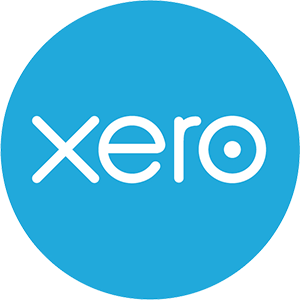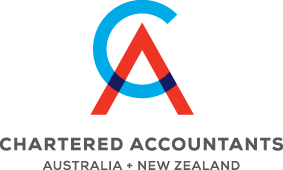2016 Budget Report - Tax
2016 Budget Report – Tax
Finance Minister Hon Bill English revealed no tax surprises in the 2016 Budget Speech. The key tax measures in Budget 2016 were revealed by the Prime Minister John Key last month in a pre-Budget announcement. Presented as a "business-friendly tax package", the announcement included the following:
- Reform of the provisional tax regime - removal of use of money interest (UOMI) for the first two provisional tax instalments, extending the safe harbour threshold from $50,000 to $60,000 and the introduction of a new "accounting income method" (AIM) that will allow taxpayers with a turnover of less than $5m to use their accounts to calculate and pay provisional tax monthly or two-monthly.
- Overhaul of the rules for schedular withholding payments - giving contractors the option of choosing their own withholding rate (while having a minimum 10% rate for resident contractors and 15% for non-resident contractors), bringing labour-hire firms within the net for withholding payments, and bringing in a voluntary option for contractors not currently covered by the schedular withholding rules.
- Removal of late payment penalty - the current 1% monthly incremental late payment penalty will be phased out in a staggered approach.
- Greater transparency - tax debt in serious cases will be disclosed to credit reporting agencies, and Inland Revenue will share information with the Registrar of Companies in cases where a serious offence has been (or will be) committed.
The Finance Minister also referred to:
- New Zealand's recent signing of an international agreement that increases information sharing between the revenue authorities of 39 countries
- the current "John Shewan" review of New Zealand's foreign trust regime, and
- the continuing work to address tax avoidance issues that New Zealand is carrying out as an OECD member. In terms of capital spending, the Budget allocates $857m for Inland Revenue's new tax administration system. Back to Top Overview
Limited tax changes
Tax cuts may be a while away
Ministerial statement "When it is affordable, and when economic conditions permit, the Government would like to lower income taxes with a focus on lower and middle income earners who have faced fiscal drag as their incomes continue to rise. However, reducing debt is currently a higher priority than reducing revenue. The Government is also cautious given the wide band of uncertainty around economic and fiscal forecasts. The new operating allowances mean there isn't an explicit provision for tax cuts in the forecasts, but the Government will continue to consider options around lowering tax rates and thresholds – either in Budget 2017 or after - if the fiscal situation improves further."
SMEs tax simplification
Ministerial statement "Further support for businesses - particularly small enterprises - comes through a $187 million SME- friendly tax package, which the Prime Minister announced last month. This provides a better balance of incentives to encourage taxpayers to pay the right amount of tax. Provisional tax will be reformed, with a new pay-as-you-go option allowing small businesses to pay tax as they earn income. Use-of-money interest will be eliminated or reduced for the vast majority of taxpayers. Contractors will be able to choose a withholding tax rate that suits their own circumstances. And the ongoing 1 per cent monthly late-payment penalty will be scrapped from 1 April 2017 for new debt - although immediate penalties and interest charges will continue."
Changes to provisional tax
- Increasing the current $50,000 residual income tax "safe harbour" limit for use of money interest (UOMI) to $60,000 and extending this safe harbour to all taxpayers.
- Removing UOMI interest for the first two provisional tax payments for all taxpayers who use the uplift method.
- Allowing businesses with turnover under $5m to use an accounting income basis (AIM) to pay provisional tax on a pay-as-you-go basis through their accounting software with monthly or two-monthly payments linked to the GST return periods (effective from 1 April 2018).
- Allowing companies to pay tax on behalf of shareholders (effective from 1 April 2018).
Changes to withholding tax
- Allowing contractors to elect their own withholding rate without applying to Inland Revenue (subject to eligibility limits and a minimum rate of 10% for resident contractors and 15% for non-resident contractors).
- Extending withholding tax to labour-hire firms.
- Permitting voluntary withholding agreements.
Changes to late payment penalties
- No longer imposing incremental late payment penalties (LPP) on future GST, provisional tax, income tax and Working for Families Tax Credits debt.
The reduction of taxpayers' exposure to UOMI and LPP, representing a valuable step towards a better designed payment system, has been well received, but the view is that the Government could have gone further. The extent of business demand for changes to withholding tax and other previously announced measures is uncertain.
The Making Tax Simpler: Better Business Tax issues paper notes that provisional tax is a source of stress because of the uncertainty and unpredictability of income, with the UOMI and penalty rules imposing further stress. Businesses following provisional tax rules as set out in statute have been hit unfairly with high UOMI charges. Proposals for extension of the safe harbour amount and its use by non- individuals, together with imposing UOMI charges only from the third instalment where the provisional tax uplift method is used, are welcome, particularly for small businesses with seasonal or volatile income-earning patterns.
AIM is technologically revolutionary, with payments generated by accounting software and authorised by the user. The technology does not yet exist and Inland Revenue will need to work with software providers, hence the longer lead time. Some small businesses may appreciate AIM, but it will put pressure on the accuracy of information within accounting systems. Cashflow implications of monthly/two-monthly tax payments may be challenging. The Government clearly favours greater use of withholding taxes as part of Inland Revenue's business transformation, with the proposed reforms being only the start.
The above changes will apply from 1 April 2017 (unless otherwise stated) with feedback on the April 2016 issues paper required by 30 May 2016. This package is expected to cost $187m over the next four years.
For further information and analysis of the budget go to the 2016 CCH Budget Report



